Added: December 18, 2008
Source: YouTube
The man who trades freedom for security does not deserve nor will he ever receive either. – Benjamin Franklin
Added: December 18, 2008
Source: YouTube
A future out of control, bankrupt financial institutions trying to hold on, limitation on credit severely limits ability of the economy to start up again, debt totally embraces our lives, handouts a state secret, soon cash infusions wont work for banks anymore, banks hold too much toxic garbage to even know if they are solvent. We are now 17 months into a credit crisis that continues to expose the corruption and incompetence of government, banking, Wall Street and transnational corporations. The situation has not stabilized and it won’t anytime soon. All we see are sweetheart deals for elitist corporations for which American taxpayers will pay for years to come. The future of our nation is totally out of control. For the last eight years our economy has been running on something for nothing, lies and deceit. The result will be hyperinflation and then the Second Great Depression.
Read moreHyperinflation and then The Second Great Depression
As many as a million American jobs could be lost every month by next spring as businesses struggle to raise capital in financial markets consumed by fear, according to a new analysis.
November was the worst month in the US labour market since the oil crisis of 1974, as more than 500,000 US workers were laid off, according to official figures released on Friday.
But Graham Turner, of consultancy GFC Economics, says the rising cost of corporate debt is now flashing a red warning signal that far worse is to come over the next few months and job losses are heading for levels last seen in the 1930s Great Depression.
Corporate bond yields have rocketed since the credit crisis began as investors flee risky assets in search of safe havens such as US Treasuries. That effectively means many firms are being forced to pay eye-watering interest rates to borrow funds.
Turner says when the gap between the yield on high-risk company bonds and US Treasuries widens sharply, unemployment tends to shoot up – and current credit conditions are pointing to a doubling in the pace of layoffs, to more than a million workers a month, by spring.
‘The correlation is holding up all too well,’ he said. ‘It’s very disconcerting.’ He added that the pace of layoffs already happening in the US ‘is indicative of panic’. During the 1970s oil crisis the panic was relatively short-lived, he says. ‘But the worry now is that this will just roll on and on.’
Read moreFears of a million layoffs a month in corporate America
With Wall Street hemorrhaging jobs and assets, even many of the wealthiest players are retrenching. Others, like the Lehman Brothers bankers who borrowed against their millions in stock, have lost everything. Hedge-fund managers try to sell their luxury homes, while trophy wives are hocking their jewelry. The pain is being felt on St. Barth’s and at Sotheby’s, on benefit-gala committees and at the East Hampton Airport, as the world of the Big Rich collapses, its culture in shock and its values in question.
A snapshot: East Hampton, late summer, a lawn party at a house on the ocean overlooking the dunes. The host is a prince of private equity known for dressing well. One of his guests is Steven Cohen, the publicity-shy billionaire whose SAC Capital, with $16 billion under management, is perhaps the most revered of the 10,000 or so hedge funds spawned by this giddily rich time. Nearby is Daniel Loeb, of Third Point, one of the better-known “activist” hedge funds, who hopes to move soon into a 10,700-square-foot, $45 million penthouse at l5 Central Park West, a Manhattan monument to the new gilded age. Gliding easily between them is art dealer Larry Gagosian, so successful at selling Bacons and Serras to Wall Street’s new titans-including to Cohen-that he now travels in his own private jet and has his own helicopter to take him to it.
Dec. 4 (Bloomberg) — The classified ads in Dubai read like an obituary for a real-estate market that until a few months ago seemed immune from the global credit crisis.
A Turkish investor, who identified himself as Sebat, took out 10 bright yellow ads in the Nov. 25 edition of Gulf News, the United Arab Emirates’ biggest newspaper, with the headline: “DIRECT FROM OWNER DISTRESS SALE!!!” Sebat said he used to be able to buy four or five properties at a time and sell them the next day for a profit of as much as 5 percent.
“There is panic in the market,” said Sebat, 52, who wouldn’t give his full name because he’s juggling 60 properties.
The property bubble in the desert emirate, home to the world’s tallest building, most expensive hotel suite and largest manmade islands, is bursting as scarce credit and slumping oil prices have international investors scurrying to dump assets. That may shatter Dubai’s goal of creating a sustainable economy by building the Persian Gulf hub for finance and tourism, forcing it to depend on oil-rich neighbor Abu Dhabi for financing.
“Dubai is more precarious than it has ever been,” said Christopher Davidson, author of “Dubai: The Vulnerability of Success” (2008, Columbia University Press). “If the property industry collapses in Dubai, it will be finished. Dubai’s relative autonomy will come to an abrupt end.”
Read moreDubai Speculators Quit as Lending Drought Bursts Desert Bubble
Reporting from New York — JPMorgan Chase & Co. said Monday that it would cut 9,200 jobs at Washington Mutual Bank, which it acquired Sept. 25 after WaMu became the nation’s largest bank to fail amid the continuing credit crisis.
The most cuts will come at Washington Mutual’s Seattle headquarters, where 3,400 pink slips are going out, and at the bank’s San Francisco center, where 1,600 jobs are being eliminated, JPMorgan spokesmen said.
The other 4,200 firings will be spread throughout the United States, with fewer than 300 in Southern California, they said.
No branch closures are planned in California as JPMorgan integrates Washington Mutual, so retail customers in the state will continue to see the same faces as always, the spokesmen said.
Read moreJPMorgan Chase to cut 9,200 jobs at Washington Mutual
Nov. 30 (Bloomberg) — The recession engulfing the U.S. economy deepened this month as employers slashed more jobs and manufacturing contracted at the fastest pace in a quarter century, economists said before reports this week.
Payrolls shrank by 320,000 workers in November, the biggest one-month drop since the 2001 terrorist attacks, according to the median estimate of economists surveyed by Bloomberg News before the Labor Department’s Dec. 5 report. The jobless rate may have jumped to 6.8 percent, the highest level since 1993.
Employment may keep deteriorating as the credit crunch continues to bite, with Goldman Sachs Group Inc. analysts forecasting a 9 percent unemployment rate by late 2009. The worsening outlook prompted President-elect Barack Obama to craft a plan to save or create 2.5 million jobs in two years to stave off what he called a “crisis of historic proportions.”
“All signals point to a very weak labor market and further weakening,” said Dean Maki, co-head of U.S. economic research at Barclays Capital Inc. in New York. “We should expect a large stimulus program shortly after Obama takes office.”
The 11th consecutive drop in payrolls would follow a 240,000 decline in October and bring the total number of jobs eliminated so far this year to 1.5 million. Factories probably reduced staff by 80,000 workers, according to the survey median.
The jobless rate was 6.5 percent in October.
Related article: Fed Pledges Top $7.4 Trillion to Ease Frozen Credit
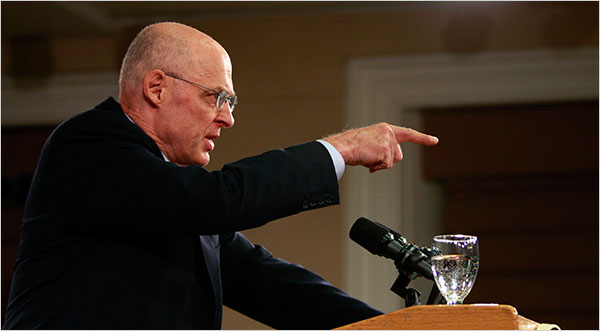
Treasury Secretary Henry M. Paulson Jr. spoke at a news conference at the Treasury Department on Tuesday in Washington.
The federal government unveiled $800 billion in new loans and debt purchases on Tuesday, hoping another infusion of cash can help unfreeze troubled credit markets and make borrowing easier for homebuyers, small businesses and students.
The Federal Reserve said that it would buy up to $600 billion in mortgage-backed assets from the government-sponsored mortgage finance giants Fannie Mae and Freddie Mac. The agency would also buy up to $100 billion in debt directly from the companies and up to $500 billion in mortgage-backed securities.
“This action is being taken to reduce the cost and increase the availability of credit for the purchase of houses, which in turn should support housing markets and foster improved conditions in financial markets more generally,” the Federal Reserve said in a statement.
Separately, the Fed and Treasury Department announced a $200 billion program to ease commercial lending on debts like student loans, car loans or business loans. The Fed would lend up to $200 billion to holders of asset-backed securities supported by car loans, credit card loans, student loans, and business loans guaranteed by the Small Business Administration.
We will see hyperinflation, the dollar will fail and then the US will fail.
___________________________________________________________________________

Henry Paulson, U.S. treasury secretary, left, and Ben S. Bernanke, chairman of the U.S. Federal Reserve, look through their notes before a hearing of the House Financial Services Committee in Washington, Nov. 18, 2008. Photographer: Jim Lo Scalzo/Bloomberg News
Nov. 24 (Bloomberg) — The U.S. government is prepared to lend more than $7.4 trillion on behalf of American taxpayers, or half the value of everything produced in the nation last year, to rescue the financial system since the credit markets seized up 15 months ago.
The unprecedented pledge of funds includes $2.8 trillion already tapped by financial institutions in the biggest response to an economic emergency since the New Deal of the 1930s, according to data compiled by Bloomberg. The commitment dwarfs the only plan approved by lawmakers, the Treasury Department’s $700 billion Troubled Asset Relief Program. Federal Reserve lending last week was 1,900 times the weekly average for the three years before the crisis.
When Congress approved the TARP on Oct. 3, Fed Chairman Ben S. Bernanke and Treasury Secretary Henry Paulson acknowledged the need for transparency and oversight. Now, as regulators commit far more money while refusing to disclose loan recipients or reveal the collateral they are taking in return, some Congress members are calling for the Fed to be reined in.
“Whether it’s lending or spending, it’s tax dollars that are going out the window and we end up holding collateral we don’t know anything about,” said Congressman Scott Garrett, a New Jersey Republican who serves on the House Financial Services Committee. “The time has come that we consider what sort of limitations we should be placing on the Fed so that authority returns to elected officials as opposed to appointed ones.”
Read moreFed Pledges Top $7.4 Trillion to Ease Frozen Credit
Nov. 22 (Bloomberg) — Seizure and sale of Downey Financial Corp. and two smaller lenders may cost the FDIC more than $2 billion as foreclosures rise and home prices extend declines in the worst housing slump since the Great Depression.
U.S. Bancorp acquired Downey and smaller PFF Bank & Trust, California thrifts crippled by bad mortgages, yesterday in a deal brokered by the Federal Deposit Insurance Corp. Community Bank of Loganville, Georgia, was also closed and its $611.4 million of deposits taken over by Bank of Essex in Tappahannock, Virginia.
Regulators this year have closed the most banks since 1993 as mortgage defaults and tightening credit froze markets. The collapse of IndyMac Bancorp Inc. was among the biggest in history, costing the FDIC $8.9 billion. The agency expects Downey’s demise to deplete its Deposit Insurance Fund by $1.4 billion, with PFF costing $700 million and Community $240 million.
Read moreDowney Seized, Sold to U.S. Bancorp as Mortgage Fallout Spreads
This Is Not A Normal Recession
Moving on to Plan B
“The Winter of 2008-2009 will prove to be the winter of global economic discontent that marks the rejection of the flawed ideology that unregulated global financial markets promote financial innovation, market efficiency, unhampered growth and endless prosperity while mitigating risk by spreading it system wide.” Economists Paul Davidson and Henry C.K. Liu “Open Letter to World Leaders attending the November 15 White House Summit on Financial Markets and the World Economy”
The global economy is being sucked into a black hole and most Americans have no idea why. The whole problem can be narrowed down to two words; “structured finance”.
Read moreThe global economy is being sucked into a black hole

Sunny Yang, left, a masters degree student from Shanghai and employed banker in New York City, speaks with World Bank representative Roberto Amorosino about opportunities for unemployed friends of his during a career fair at Columbia Univeristy Friday, Nov. 7, 2008 in New York. The U.S. unemployment rate bolted to a 14-year high of 6.5 percent in October as another 240,000 jobs were cut, far worse than economists expected and stark proof the economy is deteriorating at an alarmingly rapid pace. (AP Photo/Julie Jacobson)
WASHINGTON (AP) — The nation’s jobless ranks zoomed past 10 million last month, the most in a quarter-century, as piles of pink slips shut factory gates and office doors to 240,000 more Americans with the holidays nearing. Politicians and economists agreed on a painful bottom line: It’s only going to get worse.
The unemployment rate soared to a 14-year high of 6.5 percent, the government said Friday, up from 6.1 percent just a month earlier. And there was more grim news from U.S. automakers: Ford Motor Co. and General Motors Corp., American giants struggling to survive, each reported big losses and figured to be announcing even more job cuts before long.
Regulators, meanwhile, shut down Houston-based Franklin Bank and Security Pacific Bank in Los Angeles on Friday, bringing the number of failures of federally insured banks this year to 19.
The Federal Deposit Insurance Corp. was appointed receiver of Franklin Bank, which had $5.1 billion in assets and $3.7 billion in deposits as of Sept. 30, and of Security Pacific Bank, with $561.1 million in assets and $450.1 million in deposits as of Oct. 17.
Read moreJobless ranks hit 10 million, most in 25 years; unemployment hits 14-year high
The perilous state of the UK economy was exposed as the Bank of England’s Monetary Policy Committee made an unprecedented 1.5 percentage point cut in interest rates.

Winston Churchill meets the Queen in 1955. Photo: PA
The shock vote brought interest rates down to 3pc for the first time since January 1955, when Winston Churchill was prime minister. Economists forecast that the cut could pave the way for further reductions – with some claiming that rates could hit a historic low of 1pc.
Thursday’s move was interpreted as a desperate attempt to protect the UK economy from a severe recession.
“There has been a very marked deterioration in the outlook for economic activity at home and abroad,” said the MPC in an explanatory statement, adding that the threat of inflation was now receding.
It warned that after the most serious crisis in the global banking sector for almost a century, households and businesses were likely to find it difficult to obtain credit “for some time.” The MPC counted falling share prices, a sharp reduction in UK output, and a squeeze on household budgets among a nasty cocktail of circumstances that have combined to hit both businesses and consumers hard.
The MPC’s decision came amid a raft of gloomy news and data emerged. Figures from Halifax, the UK’s biggest mortgage lender, showed that house prices have fallen by 15pc over the past 12 months.
It was the sharpest drop since the survey began in 1983 and brought the average house price down to £168,176 in October, compared with almost £200,000 in the same month last year.
Read moreUK: Perilous state of economy revealed by MPC’s shock move
Payrolls shrink by 240,000 in October, 10th straight month of cuts. Unemployment soars to 6.5%

NEW YORK (CNNMoney.com) — The government reported more grim news about the economy Friday, saying employers cut 240,000 jobs in October – bringing the year’s total job losses to nearly 1.2 million.
According to the Labor Department’s monthly jobs report, the unemployment rate rose to 6.5% from 6.1% in September and higher than economists’ forecast of 6.3%. It was the highest unemployment rate since March 1994.
“There is so much bad in this report that it is hard to find any silver lining,” said Morgan Keegan analyst Kevin Giddis.
Economists surveyed by Briefing.com had forecast a loss of 200,000 jobs in the month. October’s monthly job loss total was less than September’s revised loss of 284,000. Payroll cuts in August were revised up to 127,000, which means more than half of this year’s job losses have occurred in the last three months.
September had the largest monthly job loss total since November 2001, the last month of the previous recession and just two months after the Sept. 11 terrorist attacks.
With 1,179,000 cuts, the economy has lost more than a million jobs in a year for the first time since 2001 – the last time the economy was in a recession. With most economic indicators signaling even more difficult times ahead, job losses will likely deepen and continue through at least the first half of 2009.
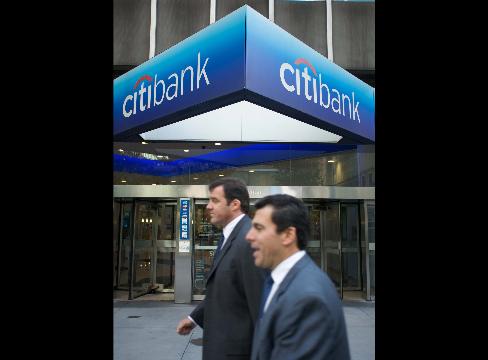
Nov. 6 (Bloomberg) — Citigroup Inc. and Goldman Sachs Group Inc., faced with a weakening economy and the prospect of mounting losses, began firing workers as part of the firms’ plans to cut more than 12,000 jobs, people with knowledge of the matter said.
Goldman, which converted last month from the biggest U.S. securities firm into a commercial bank, yesterday began telling about 3,200 employees, or 10 percent of its workforce, they were out of a job, according to one of the people who declined to be identified because the decisions were confidential.
Citigroup has been notifying staff this week who are affected by the bank’s plan to discard 9,100 positions over the next 12 months, or about 2.6 percent of its headcount, another person said.
The ousted workers add to the swelling ranks of Wall Street’s unemployed, their lives upended by the credit crisis. Both New York-based firms have already cut staff, and are among the banks and brokerages worldwide that have shed almost 150,000 jobs since the subprime mortgage market collapsed last year. Led by Chief Executive Officer Lloyd Blankfein, Goldman said in April it would fire more after culling about 1,500 underperformers. Vikram Pandit, Citigroup’s CEO, shed 12,900 over the past year.
“We haven’t hit bottom yet,” said Henry Higdon, managing partner at Higdon Partners LLC, a New York-based search firm specializing in financial services. “They have to adjust the size of their businesses to the realities, not only today, but what it’s going to look like in the next two or three years.”
Read moreCitigroup, Goldman Said to Begin Eliminating More Than 12000 Jobs
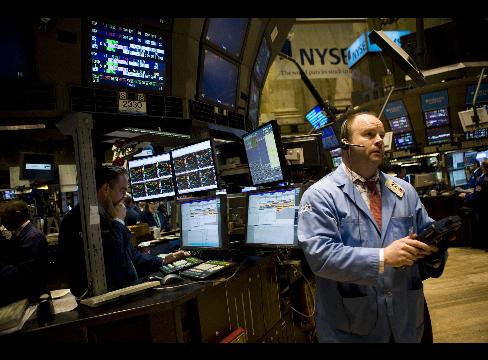
Traders work on the floor of the New York Stock Exchange in New York, Nov. 5, 2008. Photographer: Ramin Talaie/Bloomberg News
Nov. 5 (Bloomberg) — The stock market posted its biggest plunge following a presidential election as reports on jobs and service industries stoked concern the economy will worsen even as President-elect Barack Obama tries to stimulate growth.
Citigroup Inc. tumbled 14 percent and Bank of America Corp. lost 11 percent as the Standard & Poor’s 500 Index and Dow Jones Industrial Average sank more than 5 percent. Nucor Corp., the largest U.S.-based steel producer, slid 10 percent after bigger rival ArcelorMittal doubled production cuts amid slowing demand. Boeing Co., the world’s second-largest commercial planemaker, lost 6.9 percent after UBS AG forecast a 3 percent drop in global air traffic next year.
Read moreU.S. Stocks Post Biggest Post-Election Drop on Economic Concern
Nov. 6 (Bloomberg) — Airbus SAS and Boeing Co. may end up with as many as 200 new planes without buyers next year because airlines are unable to obtain funds to pay for them amid a global credit squeeze, a consultant said.
“There’s a funding gap and we don’t really know where the money is coming from,” Eddy Pieniazek, a director of aviation adviser Ascend, said at a conference in Hong Kong yesterday. “If the money doesn’t arrive, you can quite easily see 200 new aircraft, or whitetails, parked in a desert.”
Airbus and Boeing, the world’s two-biggest airplane makers, will probably deliver about $65 billion of large commercial aircraft next year, according to a report by JPMorgan Securities Inc. Leasing companies and banks, which will account for about 60 percent of the aircraft financing market in 2008, are likely to “pull back substantially,” creating a funding gap as wide as $20 billion, the report said.
“Nobody is getting out of this alive,” said Bill Cumberlidge, director of aviation asset finance at Allco Finance Group, which on Nov. 4 handed over operations to outside managers after warning it may default on its debt. “The debt market is dead.”
“Zero Liquidity”
Read moreBoeing, Airbus May End Up With 200 Planes `Parked in Desert’ Amid Crunch
The French state has threatened to seize control of the country’s banks and fire top staff unless they do their part to stabilise the economy by stepping up lending to companies in need.
“The banks have got to open up credit to business: they have the means to do it,” said prime minister Francois Fillon, accusing lenders of hoarding cash. “We don’t think the banks are stepping up to task as necessary. We can withdraw the credit that we have extended to them under the state’s contract with the banks, and that will put them in difficulty. At that moment the question arises whether we should take an equity stake, change their managers, and assume control over their strategy.”
Speaking on French television, he warned: “Broadly speaking, we’ll be able to judge over the next 10 days whether they are playing the game as they should, or not.”
Read moreFrance threatens to seize banks, German bail-outs escalate
South Korea on Monday unveiled an $11bn stimulus package to boost stagnant domestic demand in Asia’s fourth-largest economy as export growth slows amid the global downturn.
Data released on Monday showed that exports, the main growth driver, grew at the slowest pace in 13 months in October, hit by falling demand from China.

VeraSun Energy Corp., one of the nation’s largest ethanol producers announced late Friday that it is filing for Chapter 11 bankruptcy protection.
The South Dakota-based company says it expects to continue normal operations and pay its workers regular salaries while it reorganizes. According to a company news release “the filing was precipitated by a series of events that led to a contraction in VeraSun’s liquidity, impairing its ability to operate its business and invest in production facilities.”
VeraSun made bad bets on the corn market over the summer as grain prices reached record highs, resulting in significant losses for the company. That came just as the U.S. economy began deteriorating.
“Worsening capital market conditions and a tightening of trade credit resulted in severe constraints on the Company’s liquidity position,” the company said.
Nov. 1 (Bloomberg) — Freedom Bank of Bradenton, Florida, became the 17th U.S. bank seized by regulators this year as the deepest housing slump since the Great Depression triggers record foreclosures and mounting losses.
Freedom, with $287 million in assets and $254 million in deposits, was shut yesterday by the Florida Office of Financial Regulation and the Federal Deposit Insurance Corp. was named receiver. Fifth Third Bancorp of Cincinnati will assume the deposits and buy $36 million of assets, the FIDC said. Freedom’s four offices will open Nov. 3 as Fifth Third branches.
Read moreFlorida’s Freedom Bank Is 17th in U.S. to Be Closed This Year
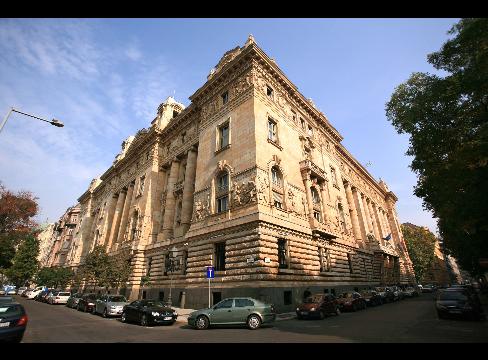
The Hungarian National Bank stands in Budapest, Hungary, on Oct. 16, 2008. Photographer: Balint Porneczi/Bloomberg News
Oct. 31 (Bloomberg) — Imre Apostagi says the hospital upgrade he’s overseeing has stalled because his employer in Budapest can’t get a foreign-currency loan.
The company borrows in foreign currencies to avoid domestic interest rates as much as double those linked to dollars, euros and Swiss francs. Now banks are curtailing the loans as investors pull money out of eastern Europe’s developing markets and local currencies plunge.
“There’s no money out there,” said Apostagi, a project manager who asked that the medical-equipment seller he works for not be identified to avoid alarming international backers. “We won’t collapse, but everything’s slowing to a crawl. The whole world is scared and everyone’s going a bit mad.”
Foreign-denominated loans helped fuel eastern European economies including Poland, Romania and Ukraine, funding home purchases and entrepreneurship after the region emerged from communism. The elimination of such lending is magnifying the global credit crunch and threatening to stall the expansion of some of Europe’s fastest-growing economies.
Read morePanic Strikes East Europe Borrowers as Banks Cut Franc Loans
Dow rises 11% on big rally, but October is still shaping up to be one of the worst months in Wall Street history.
NEW YORK (CNNMoney.com) — The Dow rallied as much as 906 points during Tuesday’s session, as investors dove back into stocks near the end of one of the worst months in Wall Street history.
The Dow Jones industrial average (INDU) added 889 points after having risen as much as 906 points earlier in the session. It was the Dow’s second-biggest one-day point gain ever, following a 936-point rally two weeks ago. The advance of 10.9% was the sixth-biggest ever.
The Standard & Poor’s 500 (SPX) index gained 91.6 points or 10.8%, its second-biggest one-day point gain ever and its fifth-best one-day percentage gain.
The Nasdaq composite (COMP) rose 143.6 points or 9.5%. On a percentage basis, it was the fourth-best one-day gain ever for the tech-fueled Nasdaq. But on a point basis, it didn’t crack the top 10.
The broad advance occurred as the two-day Federal Reserve meeting got underway, with a decision on interest rates expected Wednesday afternoon. Policymakers are widely expected to cut a key short-term interest rate.
Stocks ended Monday’s session at the worst levels in more than five years, with the major gauges down more than 25% for October. Global markets had fallen too, as investors worldwide bailed out of stocks amid the credit crisis and weak economy.
The crisis in Hungary recalls the heady days of the UK’s expulsion from the ERM.
The financial crisis spreading like wildfire across the former Soviet bloc threatens to set off a second and more dangerous banking crisis in Western Europe, tipping the whole Continent into a fully-fledged economic slump.
Currency pegs are being tested to destruction on the fringes of Europe’s monetary union in a traumatic upheaval that recalls the collapse of the Exchange Rate Mechanism in 1992.
“This is the biggest currency crisis the world has ever seen,” said Neil Mellor, a strategist at Bank of New York Mellon.
Experts fear the mayhem may soon trigger a chain reaction within the eurozone itself. The risk is a surge in capital flight from Austria – the country, as it happens, that set off the global banking collapse of May 1931 when Credit-Anstalt went down – and from a string of Club Med countries that rely on foreign funding to cover huge current account deficits.
The latest data from the Bank for International Settlements shows that Western European banks hold almost all the exposure to the emerging market bubble, now busting with spectacular effect.
They account for three-quarters of the total $4.7 trillion £2.96 trillion) in cross-border bank loans to Eastern Europe, Latin America and emerging Asia extended during the global credit boom – a sum that vastly exceeds the scale of both the US sub-prime and Alt-A debacles.
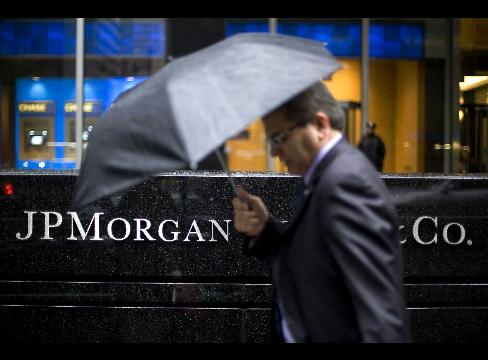
Oct. 27 (Bloomberg) — Joseph Ambrosini says the deal looked so easy. JPMorgan Chase & Co. bankers told him there was really no risk. All he had to do was sign a public financing contract, and the bank would give $280,000 to his school district in New Castle, Pennsylvania.
“They basically said, unless the world goes under the sea, we’d be in good shape,” says Ambrosini, the district’s business manager.
In September, Ambrosini says, his 3,400-student district went underwater. On Sept. 25, the week after Lehman Brothers Holdings Inc. collapsed, the New Castle Area School District’s interest rate on $9.7 million of financing arranged by JPMorgan hit 10.6 percent, more than doubling since the month began, as investors demanded skyrocketing returns for municipal debt.
While JPMorgan has been relatively unscathed by the subprime crisis that hit Bear Stearns Cos., Merrill Lynch & Co., Lehman and other Wall Street firms, a little-known part of the largest bank in the U.S. made a tidy profit peddling a different kind of corrosive debt to hundreds of counties and school districts earlier this decade.
As the credit crunch froze lending globally, causing stock markets to plunge, local officials who say they trusted JPMorgan faced a crisis of their own. Wall Street’s drive for profits over the past decade has backfired on towns, cities and counties that borrow in the $2.7 trillion municipal bond market.
Financings arranged by JPMorgan and other banks are forcing hundreds of public agencies to spend billions of dollars they don’t have to pay for increased interest payments and penalties.
No Bailouts
These come in municipal bond and derivative deals that have turned poisonous. Unlike JPMorgan, which has benefited from federal bailouts, the towns and schools the bank has financed have received no help from Washington.
Read moreFBI Probe of JPMorgan Fees Focuses on Swaps Roiling Muni Debt